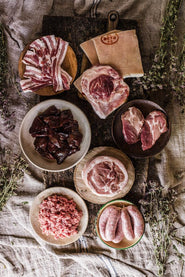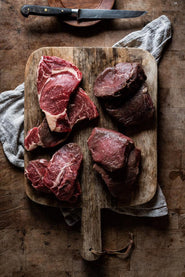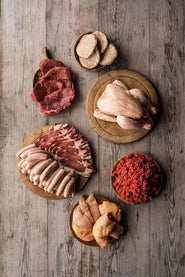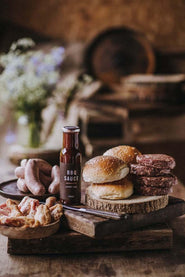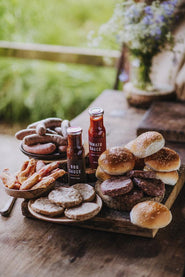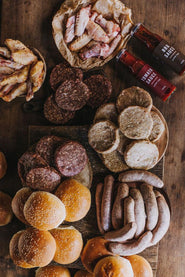The resilience of local food systems has attained the rockstar status we always knew it deserved in recent months. Here in particular, small scale farmers engaged in grass-based sustainable agricultural practices supply communities rather than middlemen, and the scrabble for food amid the Covid-19 pandemic saw them perfectly equipped to carry on producing outstanding food.
By rearing livestock on homegrown grass and feed, they are not reliant on the complex global supply chains that dominate how industrialised farming systems operate, and that disrupted meat supply when they collapsed during lockdown.

Yet a beautifully reared animal from a nearby farm is no good to anyone until it is slaughtered. For centuries this country had a network of small-scale abattoirs, where nearby farms could bring their carefully reared livestock for a respectful, humane slaughter, with minimal travel and stress. This is especially important for rare breed animals that need particularly skilled management. Yet one-size-fits-all legislation, which treats these small operations the same as industrial slaughterhouses, alongside rising costs and the collapse in price of hides and skins, has led to a third of small abattoirs closing in the past ten years alone.
Local abattoirs offer the truly artisan craft of skilled slaughter for the farmers who sell meat as a valued, respected food, and they must be protected.
These micro-abattoirs are the keystone of resilient local food systems, and have a huge role in UK food security, which is only going to become more important. As farming subsidies are due to be phased out, farmers will need to champion what is special about their livestock all the more, including their welfare standards and how the animals are reared, so that meat produced under greater care gets the price it deserves. Selling these animals into anonymised meat markets where they become a commodity, and no longer a creature, is a travesty. Without local abattoirs to serve local farmers, they are unable to market their own meat, and that means fewer family farmers, and the loss of rare, native breeds.
Local abattoirs offer the truly artisan craft of skilled slaughter for the farmers who sell meat as a valued, respected food, and they must be protected. The good news is that animal welfare has been included in the bundle of “public goods” that farmers will be asked to deliver as part of the food and farming support system going forward. Let’s hope that will include giving small-scale abattoirs the support they need to go on serving our local food system and our rural economy. After all, with no slaughter, there’s no meat.
Read more about the Campaign for Local Abattoirs here.


